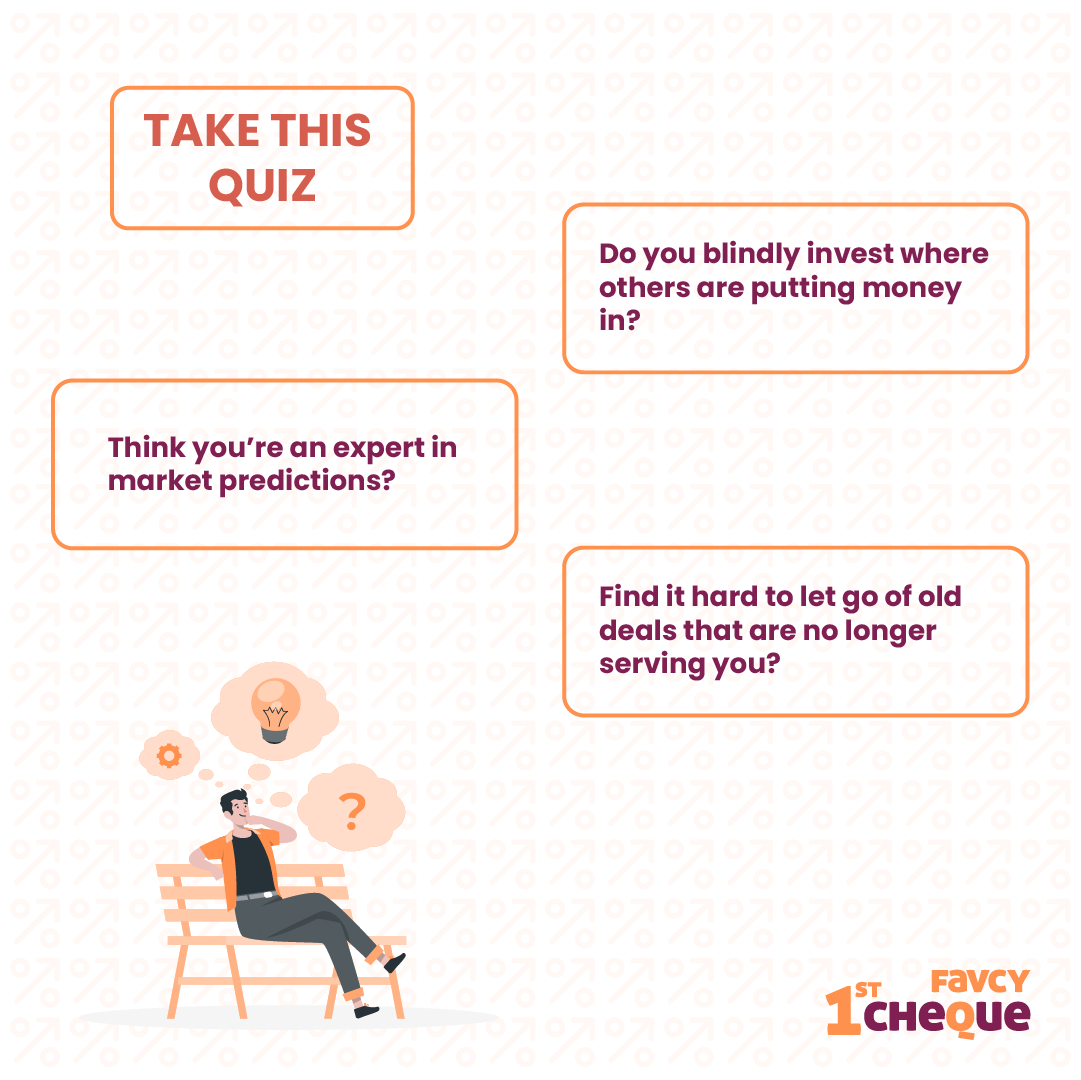
What is your investor personality type?
By Ninie Verma, Content Associate, 1stCheque by Favcy

- Are you the kind that is "hard to impress" or the kind that "loves supporting founders" in any way you can? Whatever type of investor you might be, I'm sure we got you covered.
- Read on to also find out the behavioural biases certain investors are prone to that they must learn to avoid!
Types of Angel Investors
1. The Zen Individualist:
This type of investor is careful and analytical. They are the scented-candle lighters and yoga practitioners of the angel investment world. They are finely in-tune with what they want from their investments and have confidence in their decision-making skills. They understand their limitations as investors and have a subtle quietness in their abilities. The Individualist is simply in control of their investment journey.
2. The Adventurer:
This characterizes the volatile, entrepreneurial and strong-willed investor. They are the adrenaline rush seekers. They are often confident in their investment abilities and are looking out for the next big shot. Since they have tasted success, they tend to believe more in their capabilities. Relying on their past profits, they make impulsive decisions. This is the kind that is the most peculiar. They believe in Founders and ideas when noone else is ready to believe in them.
3. The Fan-follower:
The Fan-follower Investor obsesses about financial fads and trends. They invest in a variety of alternative options, wanting to dip a finger in every seasonal pie. They often tend forget investment essentials like studying the numbers or performing due diligence before investing.
4. The Guardian:
This investor is highly risk-averse (much like an Angel Investor); they are keen on preserving wealth. They are skeptical about investing in stock markets because of rumours they may have heard from all and sundry. Ideally, the Guardian is quite prudent with its spending parity and does not fancy taking financial or investment risks as such. If they do take risks, they are very minimal and the Guardian is mindful of everything that has the potential to go wrong. They are the "hard to impress" kind. Be it a stellar pitch or solid, swoon worthy financials - it takes a lot to impress the Guardian.
5. The Archangel
The luckiest startups tend to find one of these investors. They've got years of experience in the industry and in startup-building. They always provide solid advice and do not micromanage. They're the kind that support Founders even if they're not investing in the idea. Wholesome, supportive and full of knowledge, they are the pillars of the entrepreneurial ecosystem.
Did you find your angel investor type? Maybe you're a mix of two or more! Regardless of what your investor personality type is, here are some behavioural biases all investors must learn to avoid.
- Overconfidence bias - Overconfidence leads to an ‘illusion of control’. It leads one into believing that they can control the situation and manage risk. However, the circumstances may actually not be as unchallenging as it seems. Keeping an impartial approach and relying on data is a better investment strategy.
- Investment herding - This is when you follow the investment trend of the market. It is a common phenomenon among retail and institutional investors across all investment segments. So when investing, you tend to favor schemes that are being talked about by everyone around you.
- Confirmation bias - Confirmation bias can be a result of investment beliefs or investment decisions from the past. Due to losing money in your earlier investments, you may ignore recent and important information. This information could have changed your investment decision, but your resistance to accepting it may result in a larger loss.
- Bounded rationality - This is a concept of making rational decisions under the influence of limited or bounded knowledge. This means we force ourselves to form a decision based on half-baked information. It can lead to impulsive decision-making in absence of deep research.
Thorough research, proper due diligence and a personal investment strategy that aligns with your long-term portfolio goals are things that can help you overcome these biases.